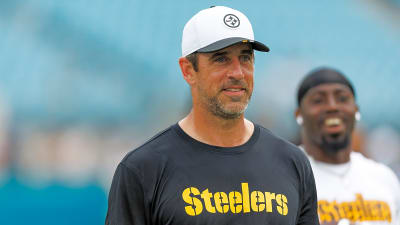
Few coaching decisions have aged worse than when Toronto Maple Leafs head coach Mike Babcock engaged in his so-called “rookie test” of Mitch Marner. It wasn’t just awkward—it became a flashpoint in how the NHL thinks about coaching, trust, and the treatment of young players.
Even years later, the story still resonates, both for what it reveals about Marner’s resilience and for what it uncovers about an old-school culture that was long overdue for change. Many still remember the “test,” but for those who don’t, here’s the story.
The Maple Leafs Players’ List That Crossed the Line
The story broke a couple of years after it happened, but by then the damage was already baked into Maple Leafs lore. In Marner’s rookie season, Babcock asked him to create a list ranking his teammates by how hard they worked. Not a game effort. Not practice habits – just a general sense of who gave the most.
Marner, just 19 and trying to impress, dutifully followed orders. To show humility, he even put himself at the bottom of the list. But then came the twist—Babcock took that list and shared it with the veterans.
That’s where things went from misguided to cruel. A rookie trying to stay afloat suddenly looked like he was evaluating players who had years of NHL experience. He hadn’t volunteered this information. He hadn’t been told how it would be used. He was blindsided.
Teammates like Nazem Kadri and Tyler Bozak didn’t take it out on Marner. They knew who had crossed the line. Kadri later admitted he confronted Babcock directly: “You just don’t do that to a rookie.” He was right.
The Fallout for Babcock, and the Thin Apology
When the story came out in late 2019, shortly after Babcock was fired, the coach admitted it was a mistake. He claimed he apologized at the time. But even if he did, it came across as the kind of quick “let’s move on” apology that doesn’t address the harm done.
Imagine being in Marner’s position: a teenager, brand new to the league, suddenly forced to navigate a dressing room where it looked like he had criticized teammates behind their backs. That’s not a learning experience—it’s a betrayal of trust. But, in the end, did it help anyone? Did it motivate Marner?
Did Marner Benefit from Babcock?
On paper, Marner thrived under Babcock. He logged big minutes, put up substantial numbers, and quickly became one of the Maple Leafs’ most dynamic offensive players. But just because someone succeeds despite something doesn’t mean they succeeded because of it.
Babcock’s style was rigid and uncompromising. He valued structure above all, which allowed him to work effectively with specific players. But when it comes to creative, instinctive talents like Marner, squeezing them into a mould risks dulling the very spark that makes them special.
Marner ultimately flourished—but how much sooner, and how much more, could he have grown under a coach who built confidence instead of confusion? It’s a question Maple Leafs fans can’t help but ask.
Was The Babcock/Marner Incident a Turning Point in Hockey Culture?
The Marner incident didn’t happen in a vacuum. Around the same time, stories from other NHL teams began to surface about coaches who ruled with intimidation. The culture of “toughening up the kid” was finally facing scrutiny. Players who once kept quiet started to speak openly. There have been other examples of player bullying reported in NHL hockey.
Marner, to his credit, never piled on. He stayed diplomatic, saying his relationship with Babcock improved and encouraged others to “speak their truth.” Coming from a player who once avoided saying the wrong thing in a meeting, that shift says a lot about his growth.
Why This Maple Leafs Incident Still Matters
It’s tempting to chalk the whole saga up as an odd footnote: a rookie prank gone wrong, everyone moving on. But that misses the bigger point. What happened wasn’t just a case of bad judgment—it reflected a coaching philosophy that needed to be changed.
Hockey has since made significant progress. Coaches are being asked to build trust as much as systems. Teams talk more openly about mental health. And players, even the youngest ones, feel more empowered to push back when something isn’t right.
Marner’s career didn’t stall because of Babcock’s list. But it’s fair to wonder how much smoother his path could have been without that baggage. If nothing else, his experience became part of the conversation that prompted hockey to reassess what constitutes good leadership.
Because in today’s NHL, it isn’t enough to draw up systems and demand compliance. Coaching is about people, too. And the Marner story remains a reminder of what happens when that truth gets lost.
[Note: I’d like to thank Brent Bradford (PhD) for his help co-authoring this post. His profile can be found at www.linkedin.com/in/brent-bradford-phd-3a10022a9]
More must-reads:
- Panthers will be without Matthew Tkachuk for a while
- Wild to sign Marco Rossi to multiyear deal
- The '2024-25 NFL rushing touchdown leaders' quiz
Breaking News
Trending News
Customize Your Newsletter
 +
+
Get the latest news and rumors, customized to your favorite sports and teams. Emailed daily. Always free!








